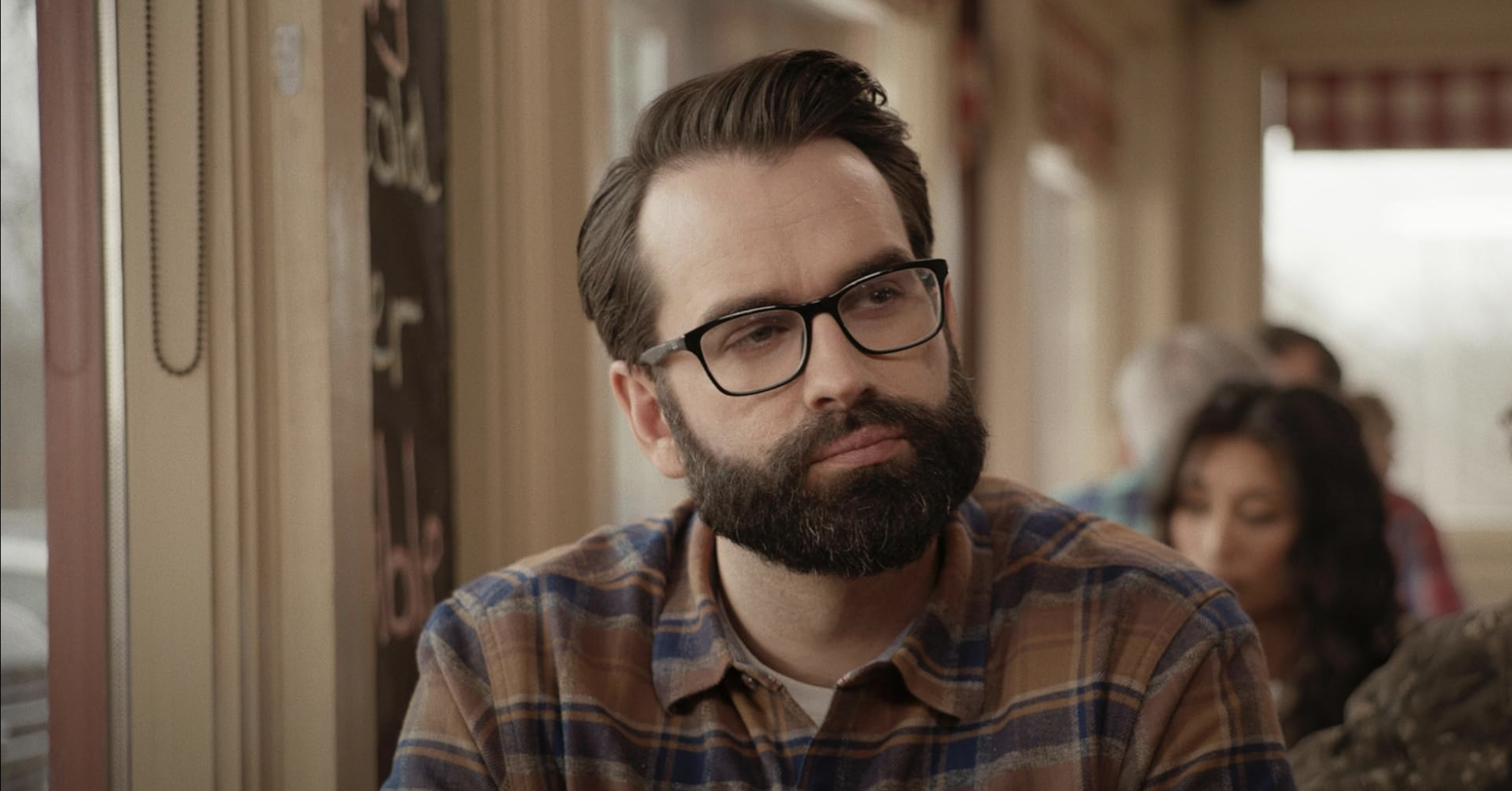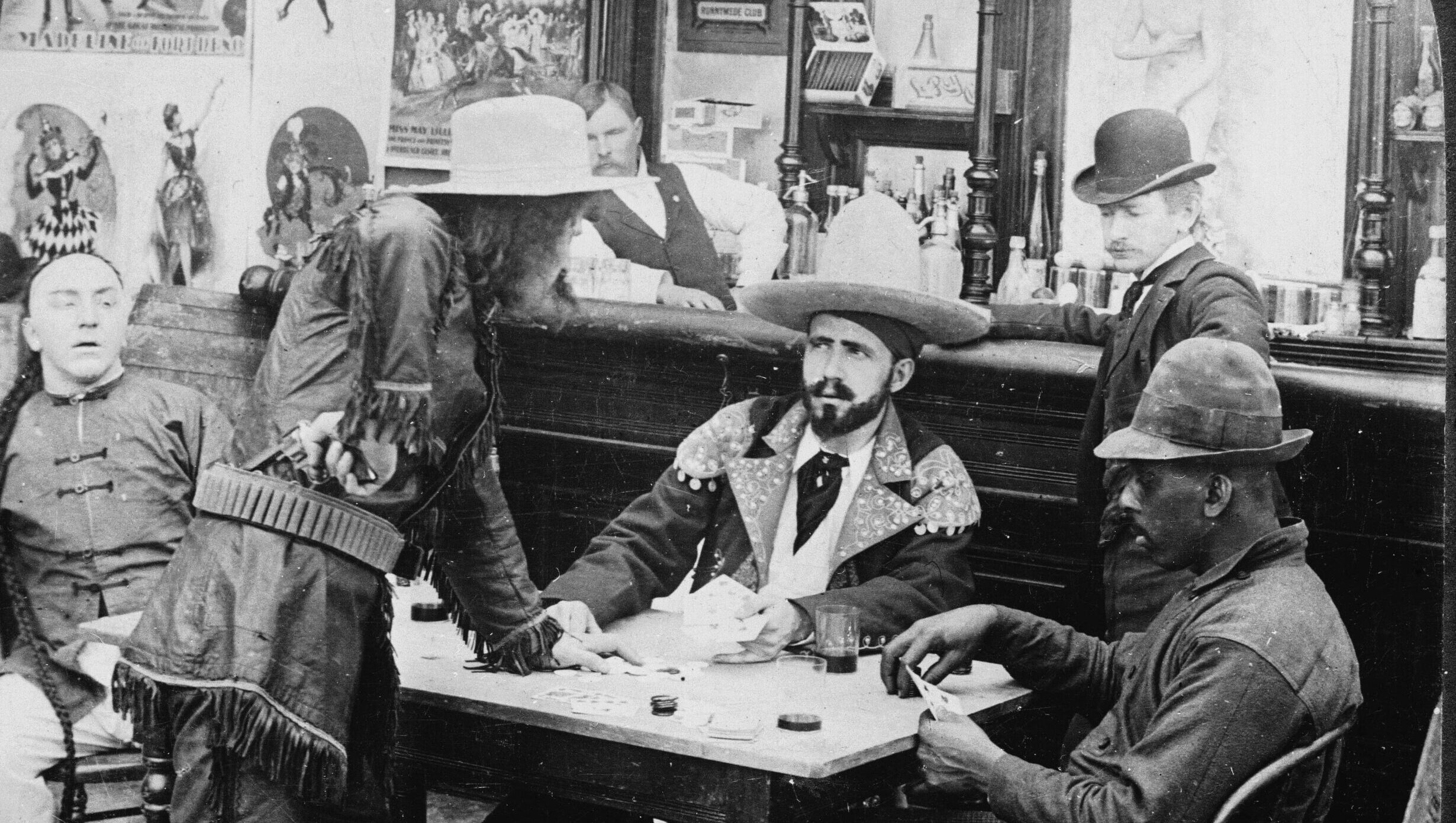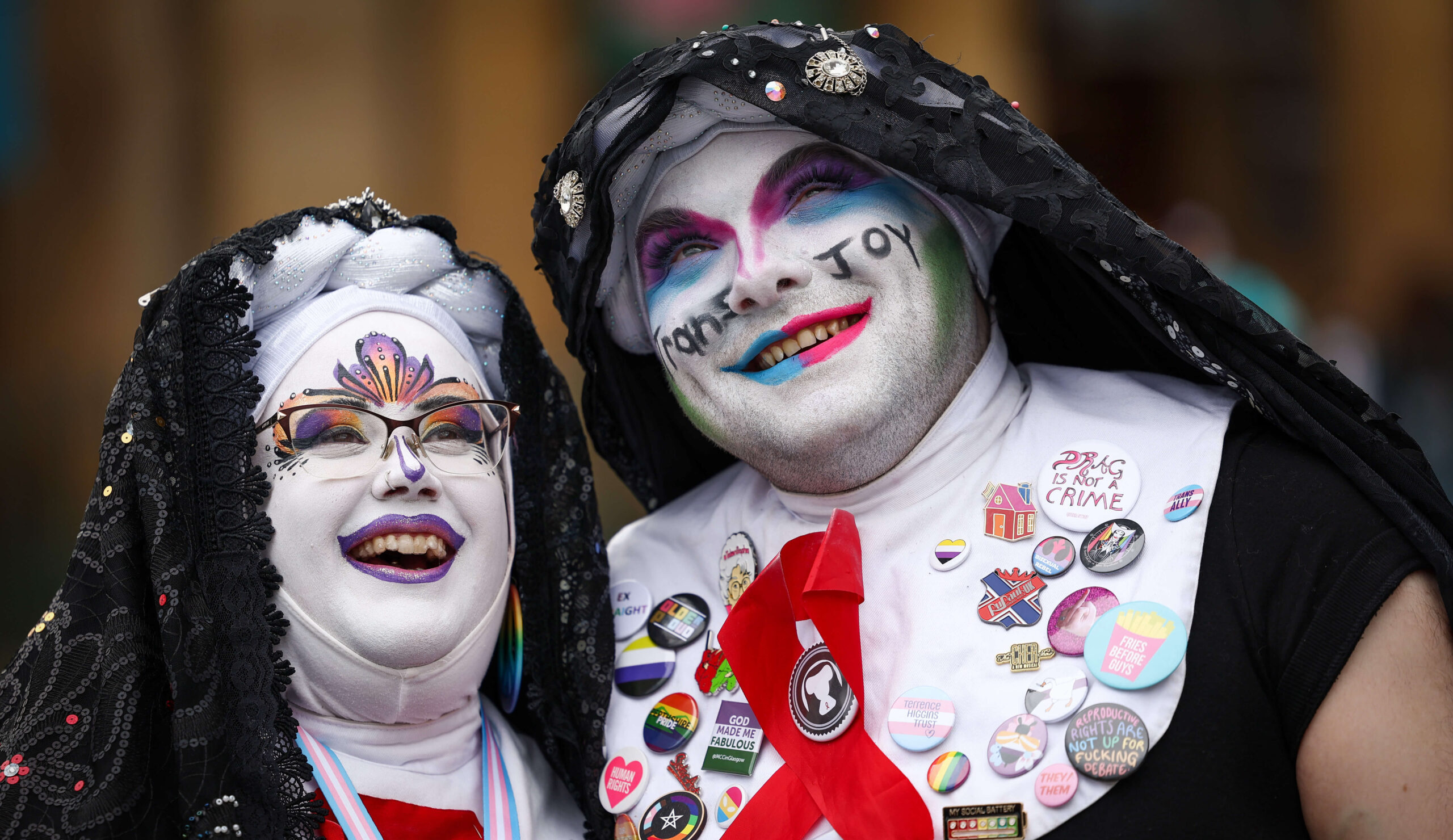The conservative pundit Matt Walsh of the Daily Wire made a splash in 2022 with his documentary film What Is a Woman?, in which he questioned transgender ideology.
His new movie is also framed as a question: Am I Racist? is currently No. 4 at the box office. In it, Walsh disguises himself as a stereotypical, wimpy “soyboy” progressive—complete with man bun—who interviews various advocates of diversity, equity, and inclusion (DEI) while posing as a fellow anti-racist true believer.
It’s one of the funniest movies of the year.
Much like advocates of critical race theory (CRT), DEI proponents see an inherent racism in all whiteness and a natural lack of racism in all things nonwhite. To them, if you’re white, there is no running from your innate racism no matter what you do or think. For white people to take CRT or DEI seriously, they must accept this dreadful but inescapable fact.
Walsh’s movie shows plenty who are willing to do so.
It’s dark, but that’s part of what makes the story so comical. When Walsh tells a self-described “anti-racist educator” early in the movie that his young daughter identifies with Moana, the Polynesian cartoon character portrayed in the 2016 Disney release of the same name, it absolutely delights the woman, who is white. He then switches gears, telling her he’s worried that his white daughter is also appropriating Moana’s culture. The woman, without hesitation, acknowledges that this is definitely a problem.
Walsh says, “But I guess, what we might call ‘the Moana problem’ here, is on one hand cultural appropriation and on the other hand there’s gravitating towards white characters . . . ”
“Right,” the educator says.
“It’s almost like no matter which way you go you end up back in racism,” Walsh concludes.
He asks, “Is America an inherently racist country?”
She replies, “I think the word ‘inherent’ is challenging . . . ”
“Fundamentally?” he suggests.
“Fundamentally, yes,” she insists. “America is racist to its bones.”
This is a theme throughout the film: White isn’t right one way or the other, and there is no escape. The premise is absurd, so Walsh has fun with it.
He demonstrates that DEI is largely a scam whose practitioners make significant money off preposterous claims and supposed expertise. His interview with Robin DiAngelo, the author of the 2018 bestseller White Fragility, has garnered some of the biggest headlines for the movie. The white author is famous for writing what is essentially a bible for DEI and CRT adherents, yet she agreed to sit down with Walsh for $15,000 (DiAngelo’s response after the movie’s release was “I had been played”). One DEI class Walsh attends costs $3,000 a person. For $5,000, white women—no men—can attend a Race2Dinner, where DEI scholars explain to attendees how racist they are.
Walsh successfully shows DEI to be a grift.
Yet it’s also something more. If the civil rights movement of the 1950s and 1960s, with Rev. Martin Luther King, Jr., as its most famed leader, was grounded in Christian principles of justice, DEI and CRT are something wholly different. If King envisioned a country that would judge people by the content of their character rather than the color of their skin, modern anti-racism preaches the exact opposite: white people’s character is determined by the color of their skin—historically, systematically, societally, and there’s nothing they can do about it.
In one scene speaking to yet another DEI expert, Walsh brings up MLK’s concern for character over race, only to have it dismissed: the DEI advocate waves it off by saying that King did get some things right—but, by implication, not everything.
That’s right: Martin Luther King, Jr. comes across as a bit player, if he is a player at all, in today’s anti-racism cult. Another DEI guru tells Walsh that she knows some of her white attendees might have “Christian backgrounds”—and that comment is not meant as a compliment.
Yes, many make money off of this ideology, but they can only do so because there are enough white people who buy into DEI as a matter of faith. These believers might not have much to say about Christianity, Christian leaders like King, or religion in general, but it’s not because they have rejected faith; they have just found a new one.
Christians seek forgiveness in Christ, and King wanted the Constitution’s protections and liberties to be applied fairly to all, but DEI offers no positive goal or salvation. There is no redemption from being white, and drilling that notion into the heads of everyone, white and non-white alike, is the beginning and end of this nihilistic creed.
Walsh deserves credit for making a hilarious movie (I laughed to the point of tears at one scene) that also justly mocks one of the most anti-human ideologies of our time. Racism is a real problem—including the blatantly racist philosophy of DEI, exposed in this movie. People of goodwill should acknowledge racism for what it is in all its forms and redress it with justice, not scapegoating and scam-artistry.















